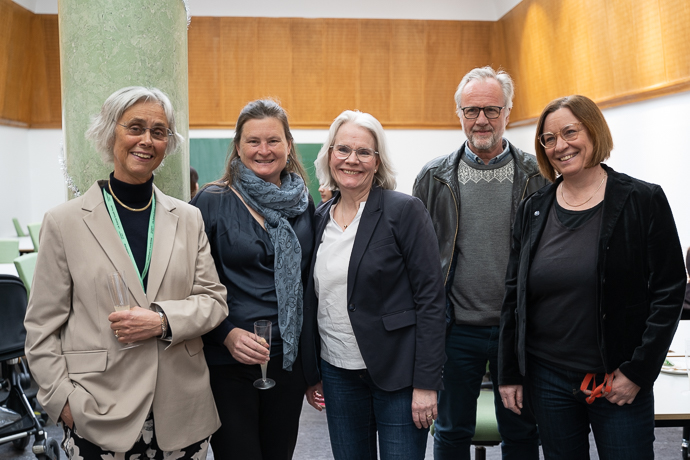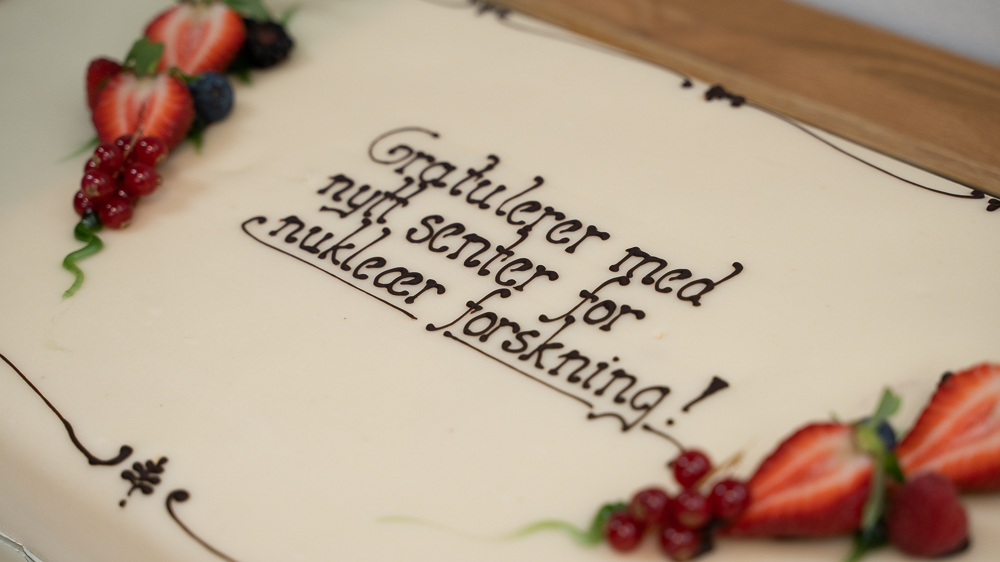We see this as a recognition. Nuclear research has long been a low priority in Norway. Together with the creation of 40 new study places in nuclear subjects at UiO and NMBU, we can finally reverse this trend. We are very happy about this! Our professional environments are in the process of establishing new bachelor programs in Nuclear Physics and Nuclear Technology(Norwegian) and a master program in Nuclear Technology, which will start already this autumn.
There are several reasons why we are happy about this award. We have long worried that the nuclear competence in Norway is deteriorating. We know that Norway has nuclear tasks and obligations, which need candidates with this competence and who can contribute with new knowledge. Many people automatically think of the development of nuclear power in connection with nuclear research, but this field contains so much more.

Regardless of whether Norway invests in nuclear power or not, the nation must have knowledge of this technology. What makes a nuclear power plant in our neighboring countries safe? What different types of fuel are used in a nuclear reactor? Norway must have its own expertise and professionals who can give independent advice to the Norwegian authorities. Furthermore, Norway must be able to handle an emergency both in the event of nuclear accidents and in a possible war.
However, nuclear competence is also important within medicine. We have approximately 18 Norwegian hospitals, which handle and use radioactive drugs every week. The hospital staff must take care of their own radiation protection and handle the medicines so that the patients receive the best ?possible treatment. Furthermore, the hospital must take care of the radioactive waste it generate. The staff must also calibrate and operate the imaging equipment correctly to provide precise answers regarding the patient's illness. The new proton center at Radiumhospitalet and Haukeland hospital will provide additional needs for candidates with nuclear competence. Radiopharmaceutical production is also an area with a strong history in Norway, with great development potential going forward.
Decommissioning is also an important business area. IFE has four nuclear reactors that will be decommissioned in the coming years and a separate company, Norwegian Nuclear Decommissioning (NND), has been set up to take care of this. The company needs competent employees who can also be security cleared. We have now invited NND to a meeting to give input to UiO's education in this context. We have also held and will hold several meetings with Norwegian industry partners to hear their input on the bachelor programs that start already from the autumn. In addition, Norwegian oil platforms are to be decommissioned, where treatment of radioactive deposits (scale) must be ensured. Norwegian expertise in connection with the decommissioning of nuclear-powered submarines and the destruction of nuclear weapons has previously been tasks Norwegian researchers had expertise in, but unfortunately, few candidates with this expertise have been trained in recent years. Now we can make up for this, Ola Borten Moe!
During two meetings in Arendalsuka this year, the MN faculty will focus on whether Norway has sufficient nuclear competence within energy, preparedness, safety and nuclear medicine. We have invited the minister to participate. If you are in Arendal this week, you are most welcome!
Eva S. Dugstad and Solveig Kristensen
